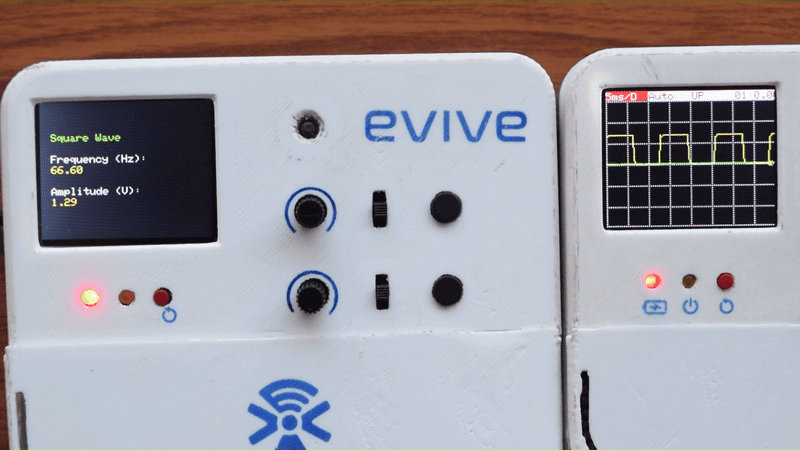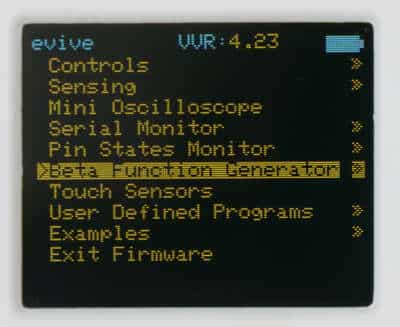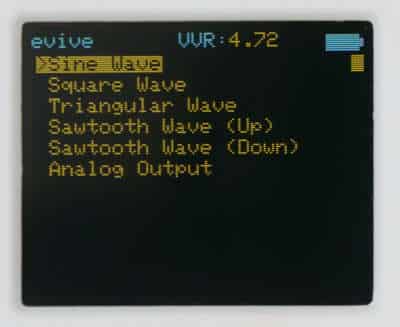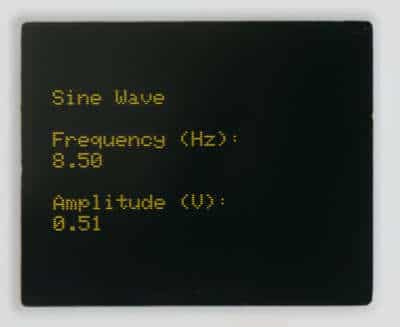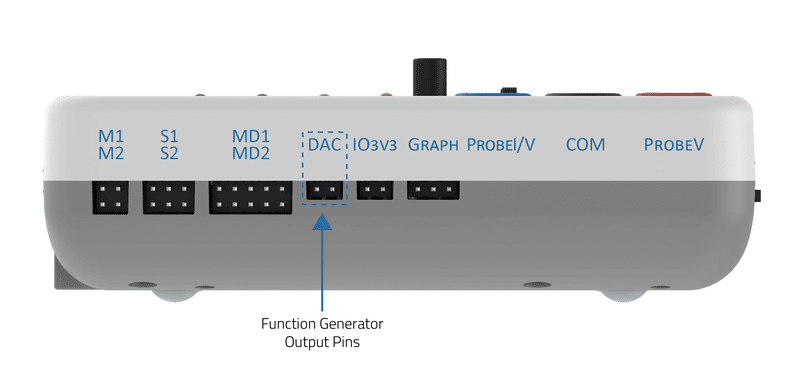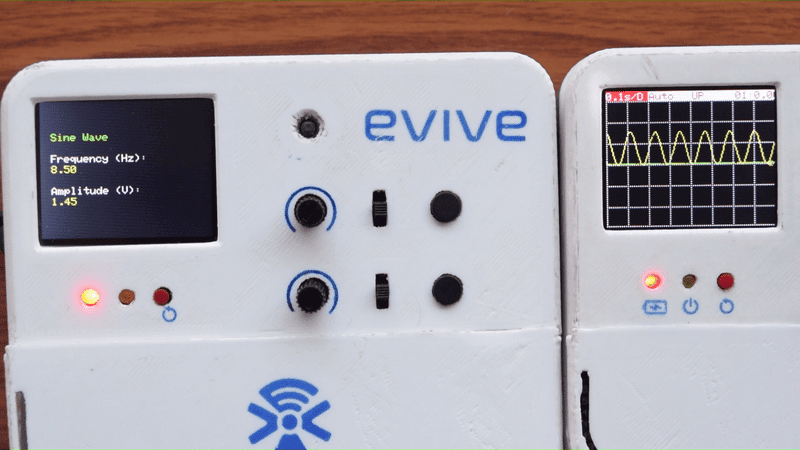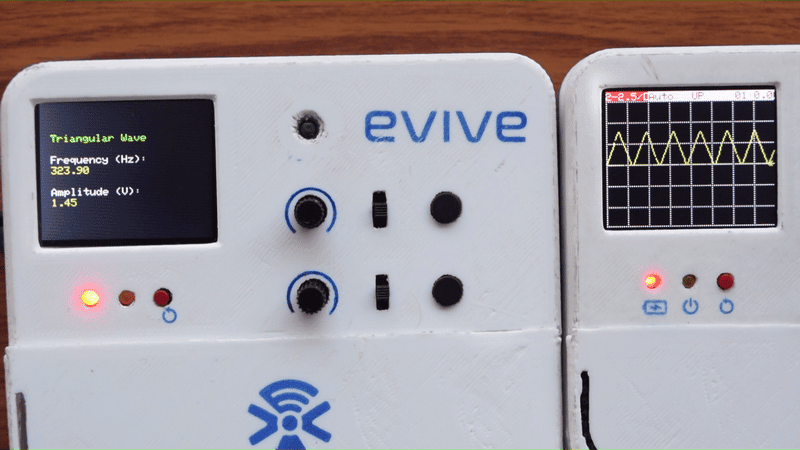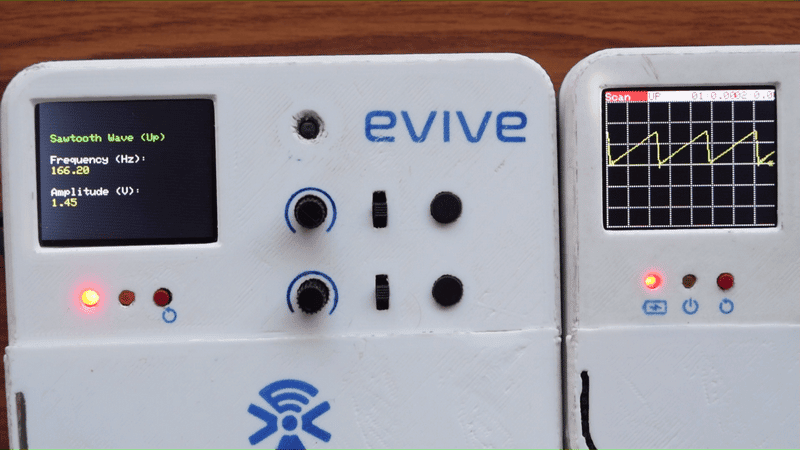Introduction
evive has a built-in 12-bit digital to analog converter using IC MCP4725 (IIC Address 0x60 or 0x62). It is controlled using IIC (or I2C) commands on Arduino MEGA of evive with an output range of 0 to 5V. With the use of this IC, the evive menu provides an option for generating analog signals.
Using the menu, you can generate waves like
- Sine
- Square
- Triangular
- Saw-tooth
- Analog signal
All the shapes are provided with an option to control amplitude between 0 to 5V and the frequency up to a few hundred Hertz. Its frequency is limited in the range of 8.5Hz ~ 500Hz.
The user can set the desired output voltage and the desired frequency using potentiometer knobs.
You can use another evive and visualize the signals on the mini oscilloscope.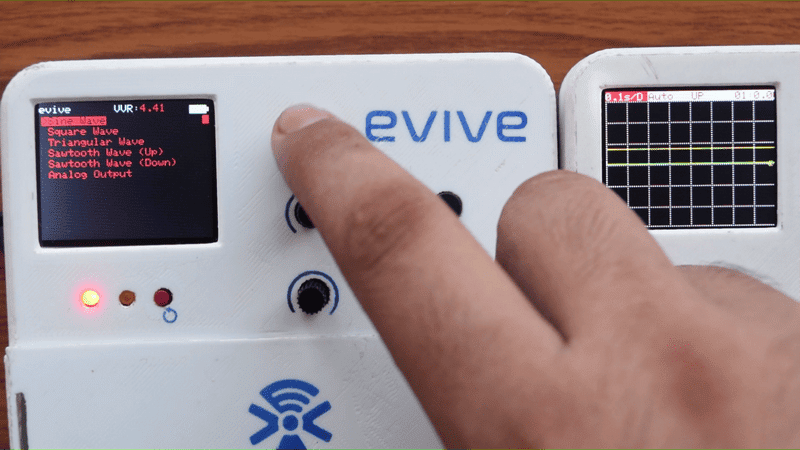
Sine Wave
Square Wave
Triangular Wave
Saw-tooth Wave
Conclusion
In summary, the evive menu is capable of generating various types of analog signals such as sine, square, triangular, and saw–tooth waveforms. The user can set the desired output voltage and the desired frequency using the potentiometer knobs. The frequency range of these signals is limited between 8.5Hz ~ 500Hz. The signals can be visualized on the mini oscilloscope.

